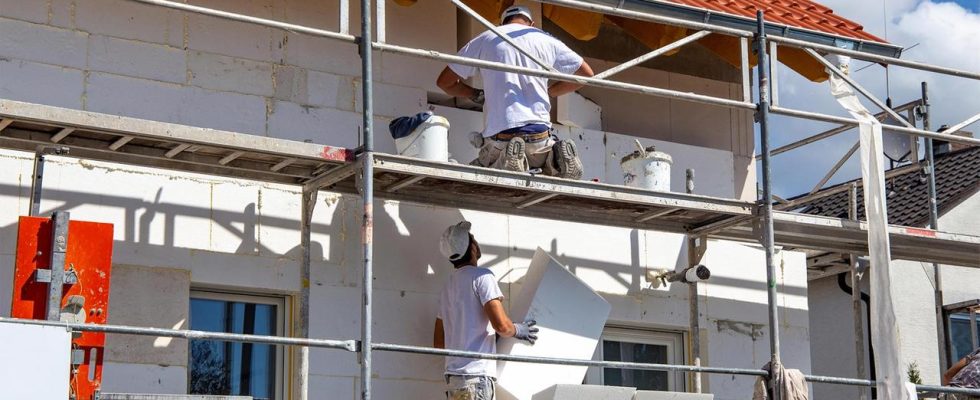The EU Parliament has voted for new renovation requirements for buildings. Residential buildings should consume an average of 16 percent less energy by 2030. It is now up to the individual states to implement the requirements.
According to the will of the European Parliament, numerous buildings in the EU must become more environmentally friendly. The majority of MPs voted for new renovation requirements, according to which the energy consumption of residential buildings should decrease by an average of 16 percent by 2030 and by 20 to 22 percent by 2035.
For non-residential buildings, the regulations require 16 percent of the least energy efficient buildings to be renovated by 2030 and 26 percent by 2033. According to Parliament’s will, all new buildings should be emission-free from 2030. This should help the EU achieve its climate goals, because according to the EU Commission, buildings are responsible for around 40 percent of energy consumption and around a third of greenhouse gas emissions.
No Obligation to renovate for individual buildings
The EU states still have to agree to the project. In most cases this is a formality. In December, negotiators from the EU states and the European Parliament had already agreed in principle on the new rules – now Parliament has officially accepted the agreement.
The project is based on a proposal from the EU Commission, which originally wanted to introduce tough minimum standards for residential buildings. The idea was that the 15 percent of the most inefficient buildings in a country would have to be renovated. Many had viewed such requirements as forced renovations – this rigid requirement was removed during the negotiations.
According to EU chief negotiator Ciarán Cuffe, there are generally no renovation obligations for individual buildings. The specific impact the requirements have on homeowners and the economy depends primarily on how Germany implements them. The Federal Association of the German Construction Industry announced that the federal government would face a major challenge. It must therefore be clarified exactly which buildings need to be renovated and when. This is important for construction companies in order to be able to plan their capacities in the long term.

